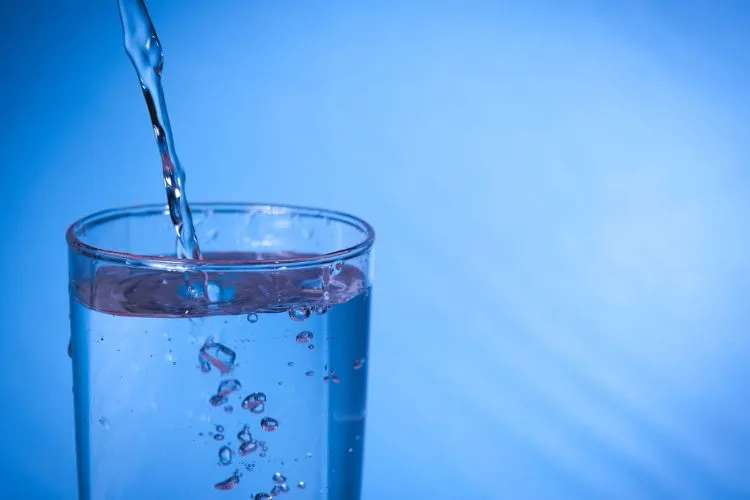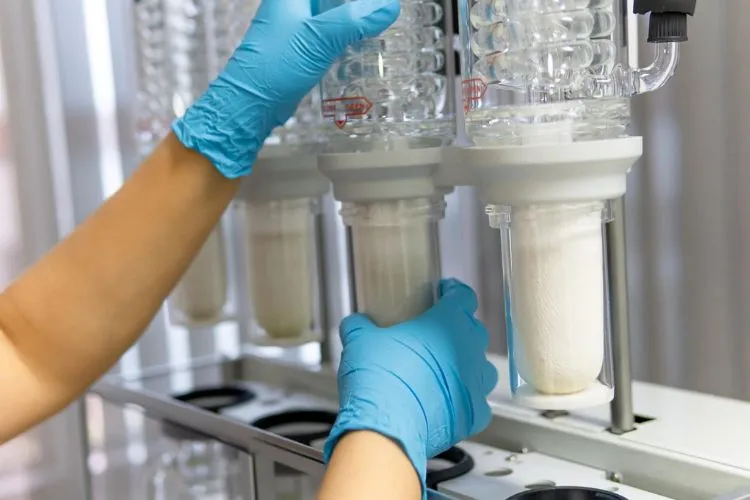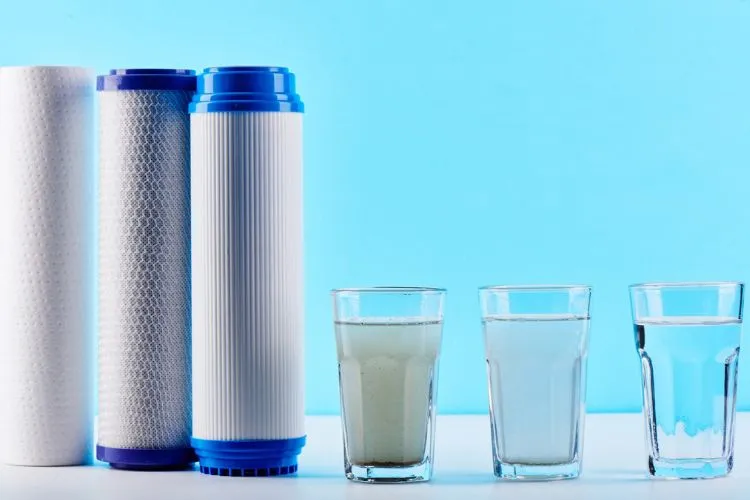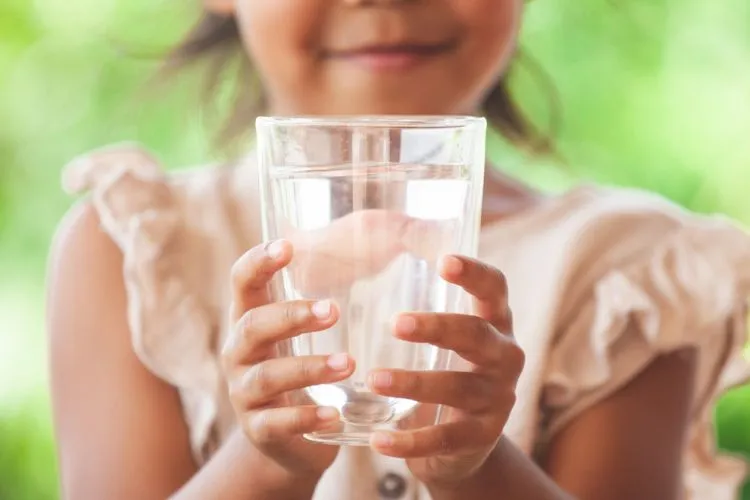Water purification has become a necessity in today’s world, where pollutants frequently compromise the quality of our drinking water.
Among the various methods available, filtering water is widely acknowledged for its effectiveness in improving both the taste and safety of water by removing contaminants.
However, even after water has been filtered, a common question arises: how long can filtered water be stored?
This article seeks to delve into this topic, presenting essential storage tips and considerations.

💦 Understanding Filtered Water
What is Filtered Water?
Filtered water is the outcome of passing water through one or more barriers designed to remove impurities.
These barriers might include materials like activated carbon, which excels at trapping organic compounds and chlorine, or systems such as reverse osmosis and UV filters that tackle a broader range of contaminants, including bacteria and viruses.
The goal is to achieve water that is not only safe to drink but also pleasant to the taste.
Benefits of Using Filtered Water
The primary advantage of filtered water lies in its improved quality. Filtering water can significantly reduce the presence of unwanted substances such as lead, chlorine, and bacteria, thus safeguarding health.
Additionally, it addresses issues related to taste and odor, providing a more appealing drinking experience.
💦 Factors Influencing the Storage Life of Filtered Water

Type of Water Filter Used
The lifespan of stored filtered water can vary depending on the filtration method.
Advanced filters that remove a larger array of impurities may contribute to longer shelf life, as there are fewer bacteria and organic compounds left in the water that could potentially degrade its quality over time.
Storage Conditions
Conditions such as exposure to light, the storage temperature, and the container’s material play crucial roles. Light, particularly sunlight, can promote the growth of algae and bacteria in water.
Temperature fluctuations can also affect water quality, with warmer conditions accelerating bacterial growth.
Plastic containers, unless specifically designed for water storage, might leach chemicals over time, while glass and stainless steel offer safer alternatives.
Initial Water Quality
The source of the water before filtration also influences storage duration. Tap water, which is typically treated by municipal systems, might store differently than water from natural springs or wells, each with its unique composition and potential contaminant levels.
💦 Recommended Storage Practices
Best Containers for Storing Filtered Water
Opting for clean, food-grade containers is essential, with glass and stainless steel being the preferred choices due to their inert properties. They do not impart any odors or flavors to the water and are less likely to harbor bacteria.
Ideal Storage Conditions
To maximize shelf life, store filtered water in a cool, dark place away from direct sunlight. Maintaining a consistent and moderate temperature prevents the proliferation of bacteria and preserves the water’s quality.
Shelf-Life Expectations
Under optimal conditions, filtered water can be stored for up to 6 months. However, this duration is contingent upon adhering to the aforementioned storage practices.
Signs such as cloudiness, an unpleasant smell, or an unusual taste can indicate that the water is no longer suitable for consumption and should be discarded.
💦 How Long Can Filtered Water Be Stored?
Treatment Options Before Storage
Additional precautions, like boiling or further filtering the water before storage, can extend its shelf life. These steps can be particularly useful if the water’s initial quality is uncertain or if it will be stored for extended periods.
Regular Maintenance of Storage Conditions
Periodic checks of the storage area and containers help identify potential problems before they compromise the water’s quality. Ensuring that the environment remains clean and stable is vital for prolonged storage.
Proper Rotation and Usage
Implementing a rotation system where older batches of stored water are used first ensures that no water remains stored beyond its optimum period. This practice is essential for maintaining a fresh, safe water supply.
💦 Special Considerations

Emergency Preparedness
In the context of emergency preparedness, storing sufficient quantities of water is fundamental.
In such scenarios, the emphasis is on having a readily available supply, with guidelines suggesting the storage of at least one gallon of water per person per day for several days.
Commercial vs. Home Filtered Water
Commercially bottled water typically has a longer shelf life compared to home-filtered water, due in part to the industrial filtration processes and sterilized bottling conditions.
However, by adopting meticulous storage practices, individuals can achieve extended shelf lives for home-filtered water as well.
💦 Common Mistakes to Avoid
Storing filtered water necessitates attention to detail to avoid common pitfalls. For instance, failing to seal containers properly can invite air and contaminants, reducing water quality.
Similarly, storing water in direct sunlight or in containers not intended for long-term water storage can degrade the water faster.
💦 Pro Tips
Labeling stored water with the date of filtration helps track its age and manage rotation effectively. Additionally, it’s wise to conduct periodic inspections of both the water and its storage conditions to preemptively address any issues.

frequently asked questions (FAQs)
Can I store filtered water in the refrigerator, and does it extend its shelf life?
Yes, storing filtered water in the refrigerator can indeed extend its shelf life by slowing down bacterial growth. However, ensure the container is sealed properly to prevent contamination.
How can I test if stored water is still safe to drink?
Observing the water’s appearance, smell, and taste can provide initial indicators. For a more thorough assessment, water testing kits are available for home use.
What should I do if my stored filtered water tastes bad?
Bad taste is a sign that the water is no longer fresh. It’s best to discard it and clean the container thoroughly before refilling.
Is it safe to store filtered water in reused plastic bottles?
Only if the bottles are designed for long-term storage and are cleaned properly. Prefer food-grade, BPA-free containers to ensure safety.
How often should water storage containers be cleaned and sanitized?
Before each refill, containers should be cleaned and sanitized to prevent the introduction of contaminants into the newly filtered water.
Conclusion:
Storing filtered water correctly is of paramount importance for maintaining its safety and quality.
By understanding the factors that influence water’s shelf life and adhering to recommended storage practices, individuals can ensure a reliable supply of fresh water.
Regular vigilance and proper management are key to maximizing the benefits of filtered water.

Devon Shorts, a seasoned expert with over a decade of experience in water safety, shares valuable insights on this blog “Aqua Safety Plus”. Trust his expertise to keep your water clean and your family safe.
